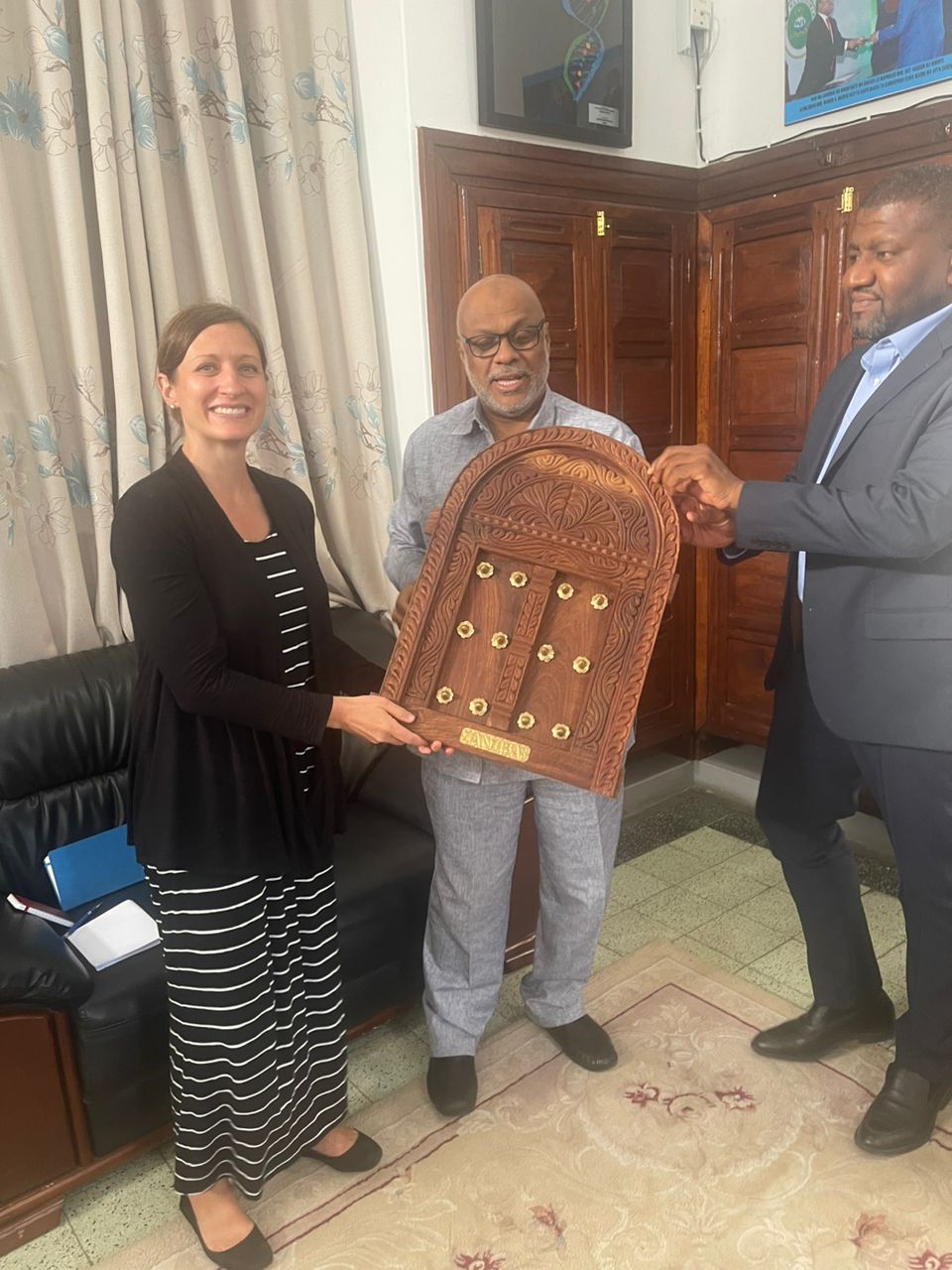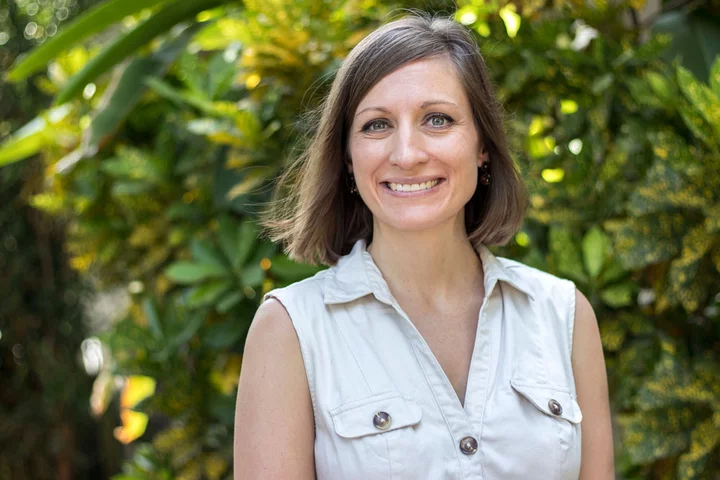Eight years ago, I began working in Zanzibar with D-tree to demonstrate the potential that community health volunteers – when supported by mobile technology – could transform the health system, improve how care is delivered, and bring the country closer to having Universal Health Coverage.
In the early days, this was challenging. We had donor funding and enough support from the government to continue our work, but community and digital health were never seen as a government priority. Nevertheless, we persisted, and year after year, demonstrated this potential through data showing how health outcomes were improving, and sharing stories of the women and children who benefitted by having a member of their community come to their house and provide them with health education, birth planning, and linkages with health facilities.
We persisted, and year after year, demonstrated this potential through data showing how health outcomes were improving, and sharing stories of the women and children who benefitted by having a member of their community come to their house and provide them with health education, birth planning, and linkages with health facilities.
In 2018, we reached a significant milestone when the Zanzibar government formally recognized our work and integrated the community health volunteer program into their strategy. For the first time, community health volunteers were part of government policy. This allowed us to design a program for national scale and work together with the government to train community health volunteers in every community in Zanzibar. This represents one of the world’s first examples of a nationally scaled, digitally enabled community health program that is revolutionizing how healthcare is delivered and how data is used. Even with this progress and engagement with the Ministry of Health, we worried about how we would fully transition this program – and the cost associated with it – to the Zanzibar government.

Fast forward to 2023. I recently left Zanzibar, having one of the most inspiring weeks of my life. During my trip, we met with the Minister of Health and the Director of Preventive Services, two of the most influential people within the Zanzibar Ministry of Health. Unlike previous years when we would meet with Ministry officials who would give us full support for the program, but then mention there was no way for the government to fund this program, we were met with the most excitement and enthusiasm I have ever seen from anyone around community health. The Minister was speaking passionately about the critical role that community health volunteers play within the health system: providing education that increases a pregnant woman’s likelihood of delivering in a health facility; focusing on maternal and child nutrition so that fewer children are stunted, thereby reducing the need for curative services later on; providing problem-solving and mentorship to families around early childhood development to set children up for success throughout their lives. He is also championing the transition of the program to the government, outlined in the recently approved transition plan that outlines how D-tree will partner with the government over the next four years to hand over financial, programmatic and technical aspects of the program.
Not only do the Minister and Director of Preventive Services see the value in the work community health volunteers are doing now, they also see the potential they can have, and the urgent need for the Zanzibar government to further strengthen their work. In our meeting, they outlined three key priorities for community health in Zanzibar:
- The professionalization of the cadre, elevating them from community health volunteers to community health workers (CHWs) – including adding them to the government payroll and making them formal government employees
- Doubling the number of CHWs and expanding the service delivery package so they can provide more comprehensive services to a smaller number of families in their catchment area
- Changing government policy to allow CHWs to administer medications, conduct rapid diagnostic tests, and deliver family planning commodities.
They see the potential for preventive services within the community to significantly reduce the demand for curative services. CHWs can identify issues before they require advanced medical care. They could treat illness within the community when they begin, without requiring support at the health facility. This is a BIG deal, as Zanzibar has a shortage of 4,000 health workers, and trained, supported and paid CHWs have the potential to reduce this gap and ensure everyone, no matter where they are, has access to high-quality healthcare. And, based on costed operational plans, we know that all of this can be possible for less than $1 per person per year.
I am leaving Zanzibar feeling energized, excited and inspired by the incredible leadership within the Zanzibar government, and the optimism that our partnership over the last 13 years has played a role in this important progress. I am grateful for groups such as the Community Health Impact Coalition that work tirelessly to professionalize community health workers worldwide, and have created global momentum towards this goal. And I am grateful to D-tree’s late founder, Dr. Marc Mitchell, who had a vision nearly 20 years ago about how digital technology could transform healthcare throughout the world, and especially in Zanzibar. If Marc could be here now, he would see the results of his tireless efforts to use technology for good and make high-quality healthcare a reality for everyone.
Often, progress feels slow and it’s hard to see our achievements. This trip reminded me that while change takes time, it is happening, and it is leading to profound improvements in the way healthcare is delivered.
For me, this trip renewed my optimism and excitement for the work that we do, and the potential of this entire field of digital health. Often, progress feels slow and it’s hard to see our achievements. This trip reminded me that while change takes time, it is happening, and it is leading to profound improvements in the way healthcare is delivered. That’s something I feel very proud of.
Photo: Fondation Botnar

